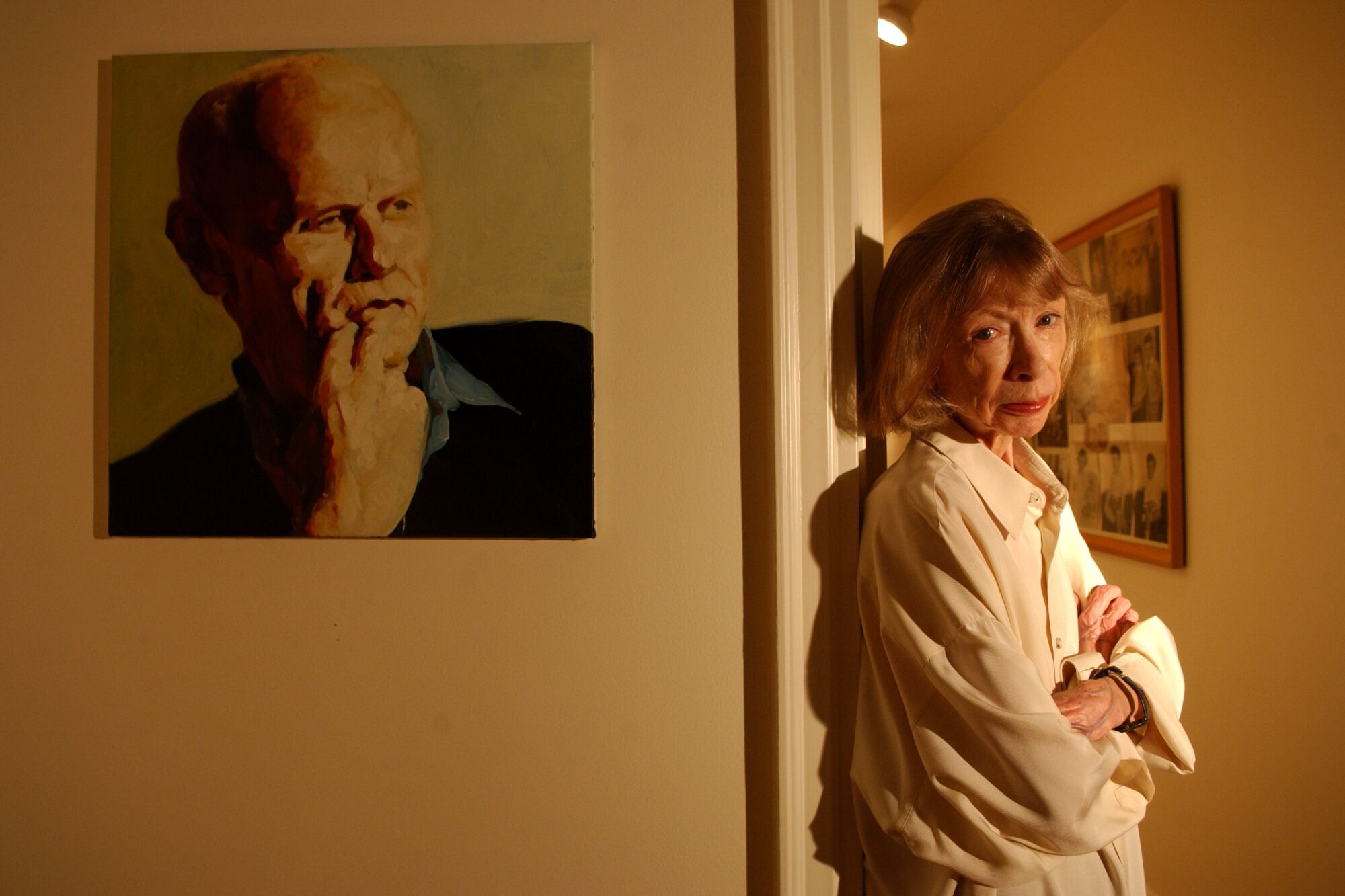on joan didion.
written on 22 february 2023. an unfiltered, kind-of-cynical account of how i found her books!
currently listening to a playlist titled ‘didionification’. didion might have passed away in december 2021 (i remember the plethora of newspaper headlines), but the cult of joan lives on.
for decades, joan didion has been idolized for her californian glamour, her raw and cutting prose, her astute observations on society and her unapologetic-ness in expressing them. under the influence of her reputation, i decided to pick up two books from her, play it as it lays and the year of magical thinking, and looked forward to devouring her sharp wits.
play it as it lays is fiction, and the year of magical thinking is a non-fiction memoir. these are two of her most famed writings.
upon reading play it as it lays, i found myself as empty as i was before i had started the book. the plot felt congested with the tangled storylines of different characters and i had to search up literary analyses of the book in order to understand its meaning; i ended the book confused, with no sense of resolution (which i appreciate was most likely the intended effect).
didion is known best for her style, which was cold and unaffected, unrevealing, operating from the policy of disengagement; i believe this was meant to convey the interpretative subtleties of the characters. i will comment on this more after touching upon the message of the book.

BZ kills himself by overdosing on pills, sick of ‘playing’, whereas maria’s going to continue following the rules of the game, playing it as it lays. i see the book perpetuating a nihilistic worldview (which seems to have become increasingly popular) – the rules of the game are all monotonous vitalities for survival and people are sick of it.
thus given the message of the story, the tone works. to me, the tone is one of such disillusionment it morphs into absolute indifference; it’s meant to be effective by not romanticising the brutish realities of the world, and that’s probably why people like it so much – i surmise that didion’s rise in popularity is correlated to the rise in counterculture between the 1950s-1970s, and so at the time it was refreshing to have someone’s public voice reflect what the majority’s feelings (as it always is).
as a comment from goodreads writes,
‘didion hardly invented this kind of persona. this pose of being a broken-winged bird, afloat in a cruel world only through inner steel and unexpected but life-giving occasional kindness has long been one assumed by women writers as different as isak dinesen and dorothy parker’.
this reinforces the point that the main reason behind didion’s magnetism is her echo of the human experience, feeling alone in the midst of isolation and hamster wheels of mechanical hustle – and that despite the natural poignancy of it all, she shouldn’t be singled out because her narrative is one that has been repeated.
i do not find didion’s style remarkable; it’s just appropriate to the subject, as one ought to be, and i think her success in encapsulating the tediousness of the world was overglorified by her being made the figurehead for societal commentary – and it’s popular still because the countercultural atmosphere (spearheaded by gen zs) is still lingering. just to clarify then, i’m not hating on didion’s writing, i just do not find her extraordinary nor unique.
after the disappointment of play it as it lays (i had approached it with high hopes of spicing up my worldview), i decided to give her a second chance – after all, everyone was raving about her being the irreplaceable author to read, so there must have been a mistake with the way i found her book – by reading the year of magical thinking, and this time i didn’t even wholly finish the book. this time, it was more to do with a lack of resonance – i definitely think that if i had experiences to relate to grief this book would have hit me harder.

but as an outsider to experiencing a strong sense of loss, i found the book (i skimmed the whole thing; fans of didion please gasp in horror) largely repetitive and predictable – it described the feelings one would anticipate from experiencing the death of a loved one in different variations. perhaps the point of it was, again, providing a unwavering voice that mirrored the experiences of others captured in a raw, unfiltered manner, and i see the value in that but i don’t find it as remarkable as how the public eye views it.
perhaps i will change my mind about this when the clutches of death fall upon me but i will not wish it upon myself for this day to come, so for now, my opinion remains unchanged.

Leave a Reply